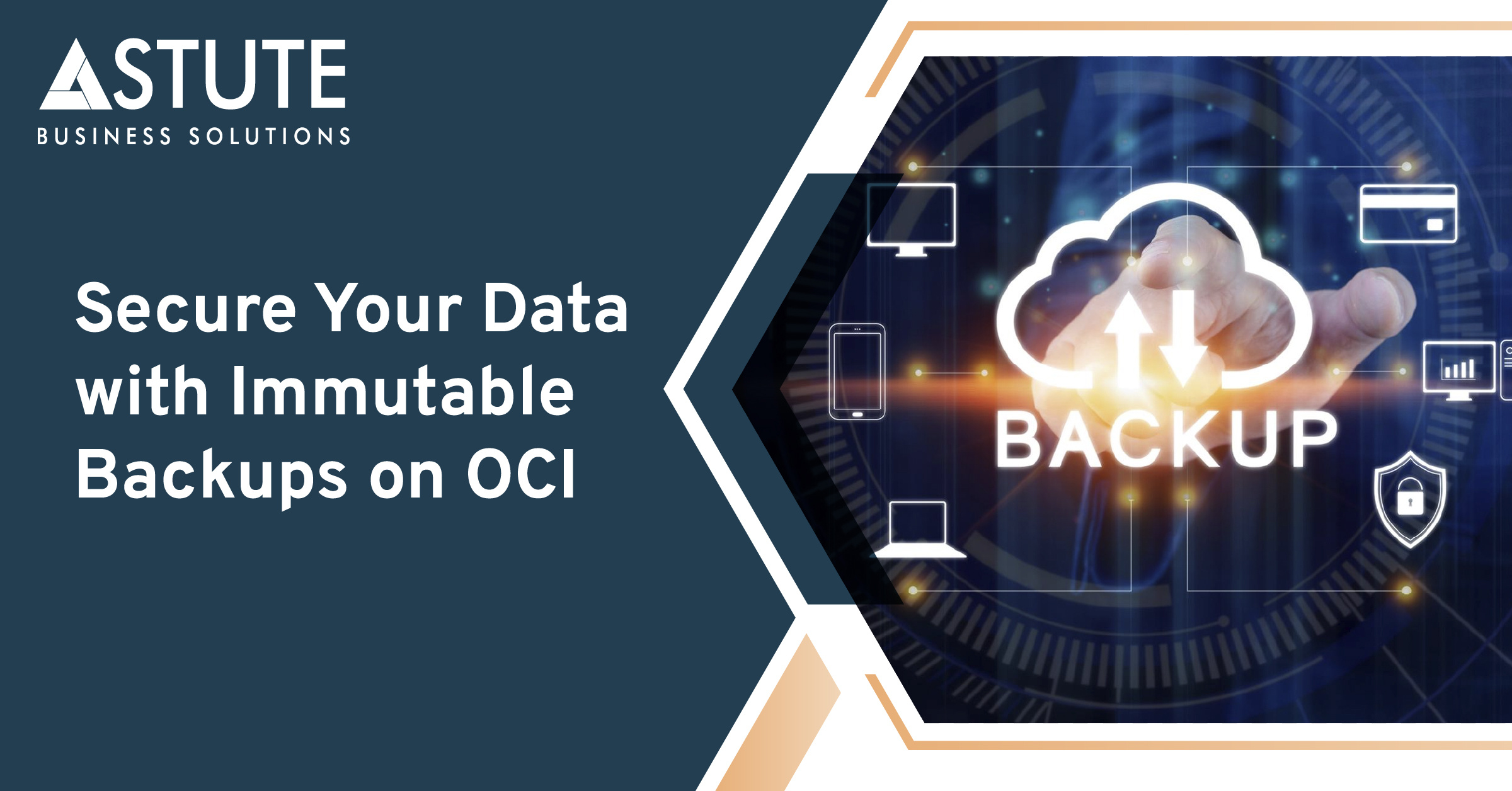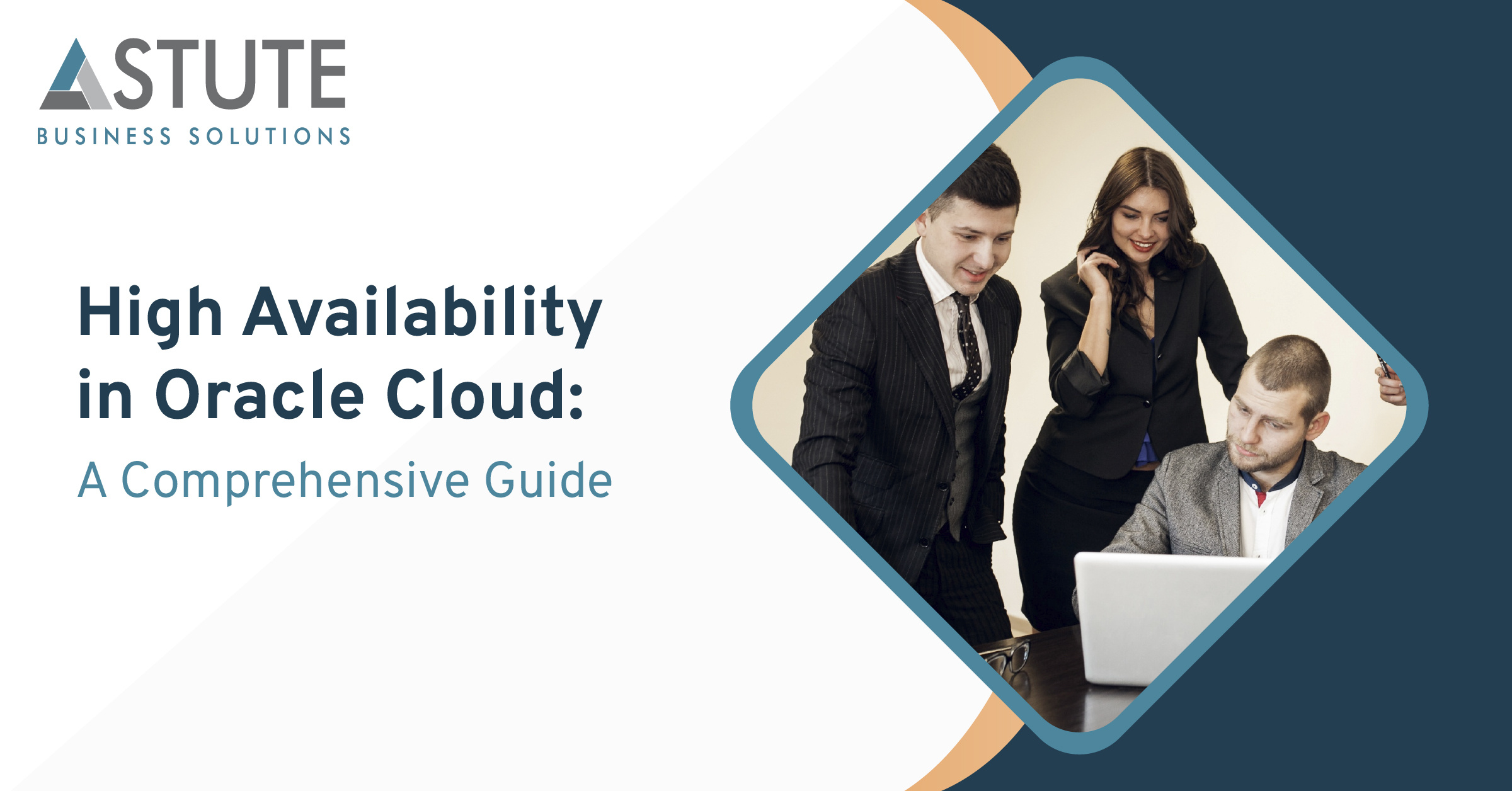Safeguarding Your Data with Immutable Backups on Cloud Infrastructure

Table of Contents
In today's digital landscape, data is the cornerstone of any organization. Whether you're in finance, healthcare, retail, or any other industry, the safety and integrity of your data are crucial. With the rise of cyber-attacks, ransomware, and data breaches, it's vital to implement robust data protection strategies. One of the most effective ways to secure your data is by using immutable backups on cloud infrastructure.
Why Are Immutable Backups So Important?
Immutable backups are designed to ensure that once data is written, it cannot be altered or deleted. This creates a secure and unchangeable version of your data, which is essential in protecting against cyber threats. Here's why immutable backups are critical:
1. Shield Against Ransomware: Ransomware attacks can encrypt your data and demand a ransom for the decryption key. With immutable backups, even if your primary data is compromised, you have a secure backup that cannot be tampered with, allowing you to recover your data without paying the ransom.
2. Regulatory Compliance: Many industries face strict regulatory requirements for data retention and protection. Immutable backups help maintain the integrity and authenticity of your data, ensuring compliance with legal and regulatory standards.
3. Ensuring Data Integrity: Immutable backups guarantee that your data remains unchanged over time, providing a reliable recovery point. This is particularly important for audits, legal investigations, and historical data analysis.
4. Peace of Mind: Knowing that your data is secure and unchangeable gives you peace of mind, allowing you to focus on your core business activities without worrying about data integrity and security.
5. Accidental Deletion Prevention: Protects against accidental deletion of critical backups, ensuring data availability.
6. Auditability: Provides audit trails and logging to demonstrate compliance and data protection practices.
7. Encryption: Immutable backups are encrypted both in transit and at rest, ensuring data confidentiality and protection against unauthorized access.
8. Access Controls: Implements strict access controls and role-based permissions to manage who can create and manage immutable backups.
Want to Protect and Recover Your Data With Immutable backups?
Oracle provides cloud-based immutable backups to provide protection against accidental deletion of your data.
How Oracle Cloud Infrastructure Supports Immutable Backups
Oracle Cloud Infrastructure (OCI) offers robust solutions for immutable backups, ensuring that your data is protected and recoverable. Here are some key services offered by OCI:
1. OCI Object Storage: Oracle's Object Storage supports Write Once, Read Many (WORM) policies, allowing you to create immutable backups. Data stored with WORM policies cannot be modified or deleted for a specified retention period, ensuring data immutability and compliance.
To store backups in immutable buckets, you must first create these buckets in OCI Object storage:
-
Regulatory Compliance Bucket configured with retention rules and rule lock (if necessary). You can also reuse an existing bucket associated with retention rules.
-
Temporary Metadata Bucket with no retention rules or retention settings During backup operations, the temporary bucket is used to store backup metadata and files temporarily.
2. OCI File Storage: OCI File Storage provides advanced data protection features, including snapshots and clones. These features enable you to create point-in-time copies of your data that are immutable, ensuring you have secure and unalterable backups.
3. Oracle Autonomous Database: The Oracle Autonomous Database includes built-in backup and recovery features. Automated backups are immutable and stored in OCI Object Storage, ensuring the integrity and security of your critical database information.
Leveraging Third-Party Solutions on the OCI Marketplace
In addition to Oracle's native services, the OCI Marketplace offers a variety of third-party solutions for backup and data protection. These solutions provide additional flexibility and features to meet your specific needs. Some notable third-party solutions available in the OCI Marketplace include:
1. Veeam Backup & Replication: Veeam provides a comprehensive backup solution that integrates with OCI. It offers features like immutable backups, instant VM recovery, and advanced monitoring and reporting, ensuring your data is secure and easily recoverable.
2. Commvault: Commvault offers robust data protection solutions that work seamlessly with OCI. Its features include backup, recovery, archiving, and disaster recovery, with support for immutable backups to safeguard your data against ransomware and other threats.
3. Rubrik: Rubrik's cloud data management solutions provide end-to-end data protection with immutable backups. Rubrik integrates with OCI to offer secure, scalable, and efficient backup and recovery solutions.
Business Drivers for Moving to Cloud-Based Immutable Backups
Migrating to cloud-based immutable backups is driven by several key business imperatives:
1. Enhanced Security: The frequency and sophistication of cyber-attacks are increasing. According to a report by Cybersecurity Ventures, global ransomware damage costs are predicted to reach $20 billion in 2021, up from $325 million in 2015. Immutable backups on the cloud provide an unalterable copy of data, effectively mitigating the risk of data being held hostage by ransomware attacks.
2. Cost Reduction: Traditional on-premises solutions often require substantial capital expenditure for hardware, software, and maintenance. Cloud solutions operate on a pay-as-you-go model, reducing upfront costs and allowing businesses to scale resources as needed, thereby optimizing operational expenses.
3. Regulatory Compliance: Industries such as finance and healthcare are subject to stringent regulatory requirements. Cloud-based immutable backups ensure compliance with regulations like GDPR, HIPAA, and others by maintaining the integrity and availability of data.
4. Operational Efficiency: Cloud-based solutions offer automated backup and recovery processes, reducing the administrative burden on IT staff. This allows IT teams to focus on strategic initiatives rather than routine maintenance tasks.
5. Disaster Recovery: Cloud-based immutable backups provide robust disaster recovery options. With data replicated across multiple regions, businesses can ensure high availability and quick restoration in case of a disaster, minimizing downtime and maintaining business continuity.
Migrating from On-Premises Solutions to the Cloud
Transitioning from on-premises solutions to cloud infrastructure for your backup and disaster recovery needs offers several benefits, including enhanced security, scalability, and cost efficiency. Here's how you can make the migration and the advantages you can expect:
The Migration Process
1. Assessment and Planning: Start with a thorough assessment of your current on-premises infrastructure. Identify the data and applications to be migrated and develop a detailed migration plan.
2. Data Transfer: Use OCI’s data transfer services to move your data to the cloud securely. Oracle offers tools like Data Transfer Appliance and FastConnect to facilitate large-scale data migration.
3. Testing and Validation: Once the data is transferred, perform extensive testing to ensure data integrity and application functionality. Validate that backups are immutable and recovery processes are effective.
4. Cutover: After successful testing, switch your production workloads to the cloud. Ensure continuous monitoring and optimization to maximize performance and security.
Benefits of Cloud vs. On-Premises for Backups and Disaster Recovery
| Benefit | On-Premises | Cloud |
|---|---|---|
| Cost Efficiency | Significant capital investment in hardware, software, and maintenance. Ongoing operational costs for power, cooling, and staffing can be high. | Operates on a pay-as-you-go model, reducing upfront costs. Scalability allows you to pay only for the resources you use, with no need for overprovisioning. |
| Scalability | Limited by physical hardware constraints. Scaling up requires purchasing and installing new equipment. | Instantly scalable to meet changing demands. Resources can be increased or decreased based on current needs without physical limitations. |
| Security | Requires dedicated IT staff to manage security. Potential vulnerabilities if security measures are not continuously updated. | OCI offers robust, built-in security features, including automated patching, encryption, and compliance with industry standards. Immutable backups enhance data protection. |
| Disaster Recovery | Setting up a disaster recovery site is costly and complex. Recovery times can be longer due to hardware dependencies. | OCI provides automated disaster recovery solutions with faster recovery times. Data is replicated across multiple regions, ensuring high availability and quick restoration. |
Conclusion
In an age where data breaches and cyber-attacks are increasingly common, protecting your data with immutable backups on cloud infrastructure is not just a good practice—it's essential. Oracle Cloud Infrastructure offers a range of robust, secure, and compliant solutions to ensure your data remains safe and unalterable. Additionally, the OCI Marketplace provides access to a variety of third-party backup solutions, giving you the flexibility to choose the best tools for your needs.
Migrating from on-premises to cloud infrastructure for your backup and disaster recovery needs brings numerous benefits, including cost efficiency, scalability, enhanced security, and faster disaster recovery. By leveraging OCI’s immutable backup capabilities and third-party solutions, you can safeguard your organization's critical data, ensuring resilience against cyber threats and compliance with regulatory requirements. Embrace the power of immutable backups and secure your data's future today.
Get Protection from Data Breaches and Cyber Attacks with OCI.
Astute will help you with cloud-based immutable backup solutions, including protection against accidental deletion of critical backups.
Search
Related Posts
Subscribe Our Newsletter
Gain access to exclusive insights, technical know-how and crucial knowledge from Astute experts.
Share Article
See The Team In Action
Upcoming Events


- AI for Higher Education
- AI for ERP
- IT Leadership
- Administrative Transformation
- HEUG Alliance 2026
AI for Higher Education
Reach Out
Ready to Connect?
Please fill the following form, we will get back to you within a business day.
Contact Form
Contact Us



